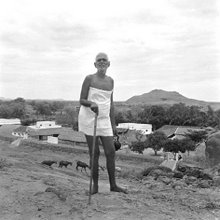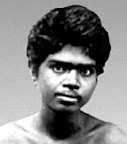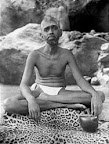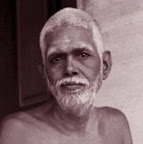EVER since Bhagavan settled at Ramanasramam, the number of his devotees steadily increased which made it impossible for all of them to listen to his teaching directly. This necessitated the publication of books. By the time the Maharshi came to the plains from the hill his proficiency in languages was fairly high, and he could write with ease in Tamil, Telugu, Sanskrit and Malayalam. Everyone felt that instead of others translating his works it would be preferable to have him give his teachings in his own words so that their purity could be preserved. Apart from this it was also felt that Bhagavan's teachings, hitherto in the form of poems, should be in the form of a theory also. Further, there were any number of people, who desired to know Bhagavan's theories, methods of practice, new approach and his clarifications of complicated matters of traditional scriptural literature. It became necessary to contradict certain incorrect concepts of the Advaita argument and lay strong foundations for Advaita philosophy. Ramana Gita was there alright to satisfy those interested in upasana and those who wanted a path but it did not sufficiently contradict certain philosophic arguments except sporadically. All these made it necessary for Bhagavan to author some books. They became invaluable. The books written by Bhagavan during his stay at Ramanasramam have pithy sayings of great import , and effective refutations of other views. There was little of emotion in them.
TAMIL WORKS:
Arunachala Mahatmyam: The Sthalapurana of Arunachala was a very voluminous work and was not easily accessible to all. Therefore Bhagavan selected some slokas describing the greatness of Arunachala and rendered them into Tamil as Arunachala Mahatmyam.
Sarvajnanotharam: This is a Saivite Agama .
Bhagavan translated into Tamil that part of it dealing with Jnana, the Atmasakshatkara section. This could be treated as an addition to Devikalotharam.
Atmavidya Kirtana: Several considered the technique of Atmavidya to be too deep and incomprehensible. Among those who disagreed with this view was Murugunar, the great poet, who authored Ramana Sannidhi Murai . He placed a piece of paper before Bhagavan one day on which he wrote the refrain:
Lo, very easy is self knowledge Lo, very easy indeed. As he could not complete the lyric he stopped with the refrain. Bhagavan saw it and took upon himself the task of completing the song.
Upadesa Saram: Muruganar looked upon Bhagavan as Siva. He himself had written copiously in praise of Siva. The theme of one of his poems was the Leela (sport) of Siva at Daruka forest. Therein, Siva undertakes to teach tatva to the Rishis. Muruganar wished to incorporate Bhagavan's teachings as Siva's Upadesa. He wrote Siva's
Leela in about seventy verses and requested Bhagavan to complete the Upadesa [?] part of the poem in thirty verses. In Tamil Nadu, from ancient times, a particular type of village dance prevailed in which the pauses in the steps were known as `Undipara.' A particular metre and rhythm had also been prescribed for it. Bhagavan adopted that metre for the poem which was titled in Tamil, Upadesa Undiyar. As a devotee rightly commented, a writing full of analogies might appeal to ordinary people but for those with a desire to know the depths of philosophy only sentences ? embodying the siddanta-would appeal. In this poem, Bhagavan, expressed the siddhanta in a poetic form.
To begin with, there is a statement that the body or karma [?] is insentient, the fruit of karma is granted by the Lord-a refutation of the proposition in Poorva-mimamsa . Gradually, the poem touches upon bhakti [?], yoga and jnana margas and comes up with the essence of Advaita.
Bhagavan gave the title of Upadesa Saram in Sanskrit for this compilation and sent it to Ganapati Muni who was then at the mango tree cave, for his opinion. Ganapati Muni was struck by the beauty of the poem and showed it to several Sanskrit scholars exclaiming "Can any one of us compose a single verse like this? Who among us has the capacity to comment on these verses? Yet we all claim to be Sanskrit scholars!" Soon thereafter, Ganapati Muni wrote a brief commentary on the poem in just two and half hours. That was translated into Tamil.
As the poem was not available in Telugu, Ramaiah Yogi requested Bhagavan for one. Thereupon, Bhagavan
himself wrote the poem in Telugu. With the help of Ganapati Muni, Swami Pranavananda wrote a Telugu commentary. Subsequently, Bhagavan himself wrote the poem in Malayalam too.
Ulladu Narpadu: Muruganar used to ask Bhagavan various questions on philosophic matters for which the latter's replies were in verse form. Such verses added up to forty (narpadu, in Tamil). Thereupon, at the suggestion of Ganapati Muni, Muruganar arranged them in a particular sequence. As the verses were about "What is" or "Reality" (Ulladu, in Tamil) the poem was titled Ulladu Narpadu (or, Reality in Forty Verses). Apart from these forty verses, occasionally, Bhagavan would give replies to Muruganar and others by translating into Tamil, some verses from other languages. In addition, there were twelve occasional verses written by Bhagavan. All these fell short of forty. At the request of Krishna Bhikshu Bhagavan made up the balance. These forty came to be known as Supplement to Ulladu Narpadu. In Telugu, the Supplement is known as Sookti Sudha.
At the request of Ramaiah Yogi, Bhagavan translated Ulladu Narpadu into Telugu prose under the title Unnadi Nalubadi. Later on, several people put them in verse form. The book itself is pregnant with insight and is a guide to jnana [?]. There are many arguments to refute the views expressed against Advaita. The book is in simple style and abounds in excellent similies.
Ganapati Muni translated the work (excluding the Supplement) into Sanskrit under the title Sat-darsan. A
commentary thereon, was written by Kapali Sastry, disciple of Ganapati Muni. Kapali Sastry himself translated the entire work into English.
Bhagavan wrote another poem in Sanskrit where the four stanzas began with the expressions De'ham (The body) Na'ham (I am not), Ko'ham (Who am I??), So'ham (That I am). This was written at the request of Ganapati Muni.
Apart from these original writings Bhagavan also made some selections from traditional texts and in some cases, wrote Tamil translations for them. Among such works may be mentioned Tayumanuvar (Tamil work) and others like Vivekachoodamani, Sivananda Lahari, Yoga Vasishta, Bhagavad Gita. Some other translations have been incorporated in the `Supplement' mentioned above.
OCCASIONAL VERSES:
Bhagavan also wrote a few verses occasionally, some of them were: 1) FROM RAMA GITA:-
"Even the conjurer deludes the world, but is not himself deluded. How strange would it be if the Siddha himself is deluded and adds to the delusion of the world."
— Translation - Collected Works
2) GANESA:
One day a potter brought and gifted a small image of Ganesa to Bhagavan, at Virupaksha cave. On that occasion Bhagavan wrote the following verse:
"He who begot you as a child you made Into a beggar; as a child yourself You then lived everywhere just to support
Your own huge belly; I too am a child. Oh child god in that niche! Encountering one Born after you, is your heart made of stone? I pray you look at me!"
— Translation - Collected Works
3) ARUNACHALA RAMANA
Sometime in 1914-1915 Amritananda Yati wrote on a paper a verse asking Bhagavan to say whether he was Hari (Vishnu) or Sivaguru (Subrahmanya) or Yativara (Siva) or Vararuchi. Bhagavan wrote the following reply on the same piece of paper In the recesses of the lotus-shaped hearts of all, beginning with Vishnu, there shines as pure intellect (absolute consciousness) the Paramatman [?], who is the same as Arunachala Ramana. When the mind melts with love of Him, and reaches the inmost recesses of the Heart wherein He dwells as the beloved, the subtle eye of pure intellect opens and He reveals Himself as pure consciousness.
— Translation - Collected Works
4. THE STOMACH'S COMPLAINT
In 1931, on a festive occasion after a sumptuous meal, one devotee quoted a poem of Avvayar the Tamil saint- poetess, a complaint about the stomach, "You will not go without food even for one day, nor will you take enough for two days at a time. You have no idea of the trouble I have on your account. Oh wretched stomach! It is impossible to get on with you."
Bhagavan immediately wrote a parody thereon giving the stomach's complaint against the ego:
"You will not give even an hour's rest to me; you ego!
Day after day, every hour, you keep on eating! You have no idea how I suffer. Oh trouble-making ego! It is impossible to get on with you!"
— Translation - Collected Works
5) SIVARATHRI:
"The day on which the ancient and wonderful linga
of Arunachala took shape is the asterism of Ardra in the month of Mrigasira. And the day on which Vishnu and the other devas worshipped the Lord in the form of effulgence is the day Mahasivarathri."
— Translation - Collected Works
In order to publish Bhagavan's works, Sri Ramanasrama Granthamala was established. All of Bhagavan's Tamil works and translations of those works into other languages thus came to be published.
Bhagavan's biography in different languages like `Self
Realisation' (English) Sri Ramana Vijayam (Tamil) and Sri Ramana Charitamrit (Hindi) got published.1 Lately a lot of Ramana literature in Hindi, Gujarati, Marathi, Bengali and Kannada is also being published. Sat-darsan, Sri Ramana Gita, Sat-darsana Bhashya, Sri Ramana Chatvarimsat are some of the Sanskrit works published.
Bhagavan's direct upadesa, especially his Silent-
Upadesa [?], was the best. The books constitute the next best. Of course, any number of writings by others are available in different languages.
Referred Resources:
Reality in Forty Verses
Arunachala Ramana
Vivekachoodamani
Sri Ramana Gita
Upadesa Saram
Who am I?
Links to letters:
prarabdha: (Chapter 116: Prarabdha (Fate)
Links to rl:
Muruganar: (Chapter 34: Followers
Ganapati Muni: (Chapter 22: Ganapati Muni
Virupaksha: (Chapter 18: The Peerless Hill
Ramana Gita: (Chapter 27: Sri Ramana Gita
1915: (Chapter 27: Sri Ramana Gita
Links to sp:
Links to gems:
sakshatkara: (Chapter 8: Self-Realization
destiny: (Chapter 11: Fate and Freewill





No comments:
Post a Comment